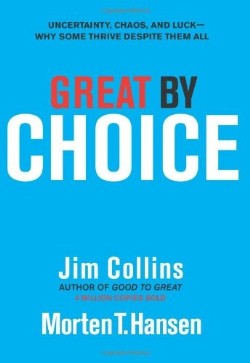Reality Of God And Historical Method
$44.99
After a flurry of heated debates in the mid-twentieth century over the relationship between faith and history, the dust seems to have settled. The parties have long since dispersed into their separate camps. The positions are entrenched and loyalties are staked out. This first volume in the New Explorations in Theology is a deliberate attempt to kick up the dust again, but this time as a constructive development of what is now being called “apocalyptic theology.” Samuel Adams argues that any historiography interested in contributing to theological knowledge must take into consideration, at a methodological level, the reality of God that has invaded history in Jesus Christ. He explores this idea in critical dialogue with the writings of New Testament historian and theologian N. T. Wright, whose work has significantly shaped the current conversation on this problem. The Reality of God and Historical Method is a fresh, bold and interdisciplinary exploration of the question: How is it possible to say that a particular historical person is the reconciliation of the world?
in stock within 3-5 days of online purchase
SKU (ISBN): 9780830849147
ISBN10: 0830849149
Samuel Adams
Binding: Trade Paper
Published: December 2015
New Explorations In Theology # 1
Publisher: InterVarsity Press
Print On Demand Product
Related products
-
Knowledge Of The Holy
$15.99Informative and inspiring, The Knowledge of the Holy illuminates God’s attributes–from wisdom, to grace, to mercy–and shows through prayerful and discussion, how we can more fully recognize and appreciate each of these divine aspects. This book will be treasured by anyone committed to the Christian faith. It bears eloquent witness to God’s majesty and shows us new ways to experience and understand the wonder and the power of God’s spirit in our daily lives.
Add to cart1 in stock (additional units can be purchased)
-
Great By Choice
$29.99The new question
Ten years after the worldwide bestseller Good to Great, Jim Collins returns with another groundbreaking work, this time to ask: Why do some companies thrive in uncertainty, even chaos, and others do not? Based on nine years of research, buttressed by rigorous analysis and infused with engaging stories, Collins and his colleague, Morten Hansen, enumerate the principles for building a truly great enterprise in unpredictable, tumultuous, and fast-moving times.The new study
Great by Choice distinguishes itself from Collins’s prior work by its focus not just on performance, but also on the type of unstable environments faced by leaders today.With a team of more than twenty researchers, Collins and Hansen studied companies that rose to greatness-beating their industry indexes by a minimum of ten times over fifteen years-in environments characterized by big forces and rapid shifts that leaders could not predict or control. The research team then contrasted these “10X companies” to a carefully selected set of comparison companies that failed to achieve greatness in similarly extreme environments.
The new findings
The study results were full of provocative surprises. Such as:The best leaders were not more risk taking, more visionary, and more creative than the comparisons; they were more disciplined, more empirical, and more paranoid.
Innovation by itself turns out not to be the trump card in a chaotic and uncertain world; more important is the ability to scale innovation, to blend creativity with discipline.
Following the belief that leading in a “fast world” always requires “fast decisions” and “fast action” is a good way to get killed.
The great companies changed less in reaction to a radically changing world than the comparison companies.
The authors challenge conventional wisdom with thought-provoking, sticky, and supremely practical concepts. They include: 10Xers; the 20 Mile March; Fire Bullets, Then Cannonballs; Leading above the Death Line; Zoom Out, Then Zoom In; and the SMaC Recipe.Finally, in the last chapter, Collins and Hansen present their most provocative and original analysis: defining, quantifying, and studying the role of luck. The great companies and the leaders who built them were not luckier than the comparisons, but they did get a higher Return on Luck.
This book is classic Collins: contrarian, data-driven, and uplifting. He and Hansen show convincingly that, even in a chaotic and uncer
Add to cart1 in stock














Reviews
There are no reviews yet.